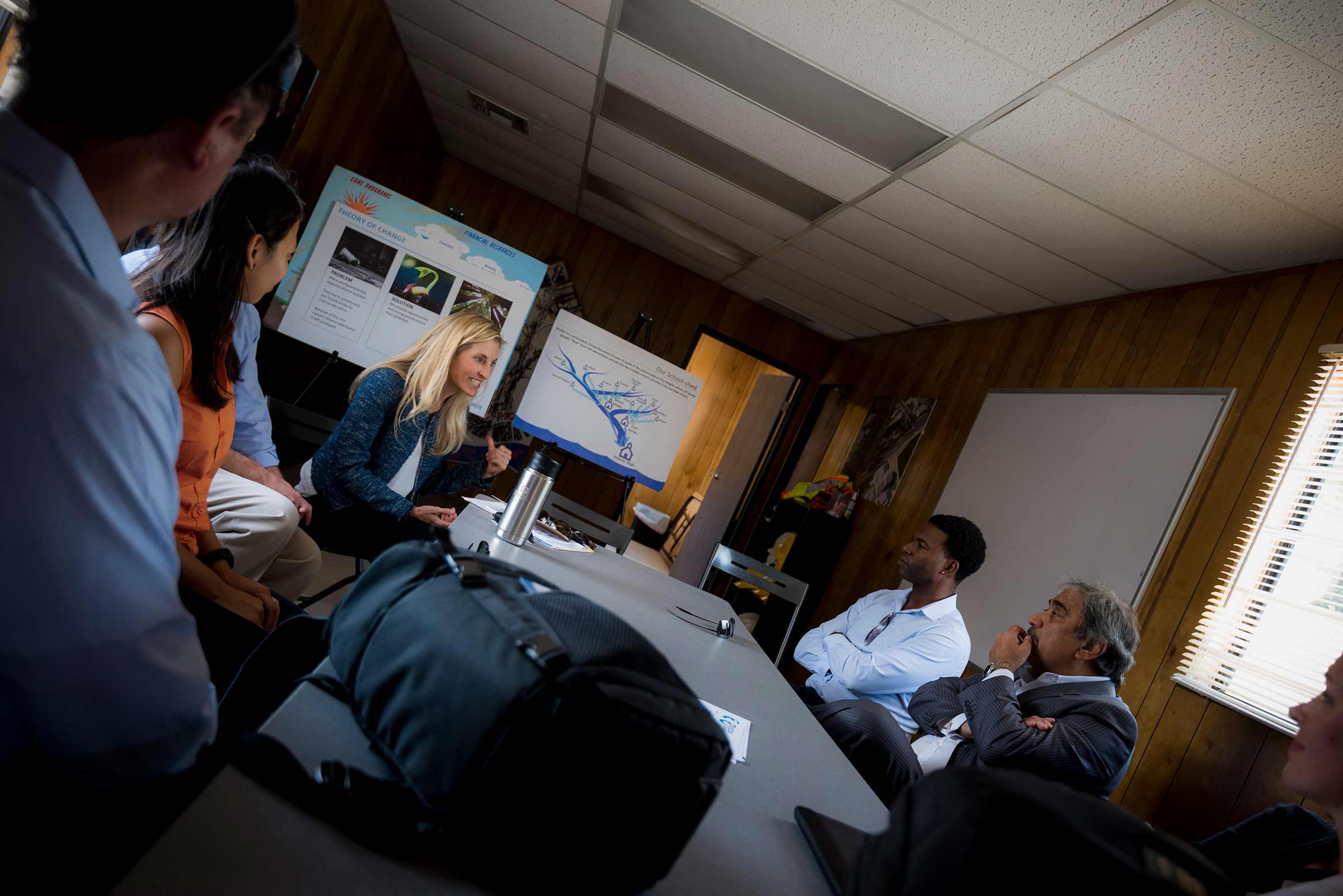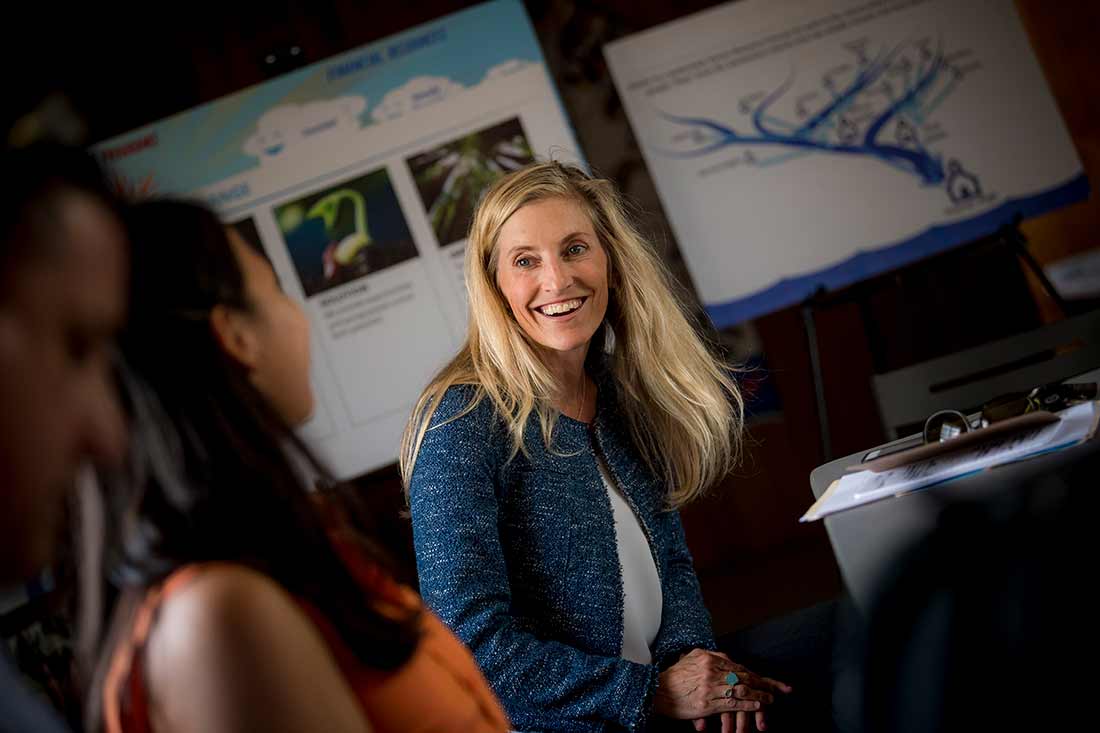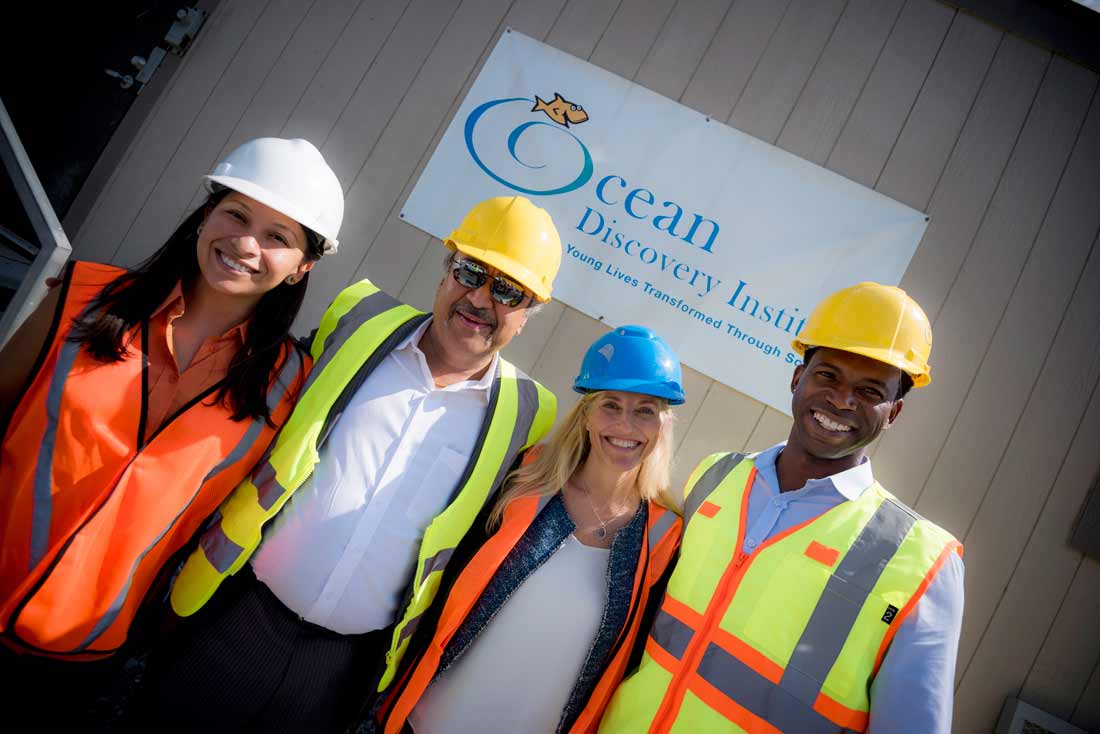By:
- Mario C. Aguilera
Published Date
By:
- Mario C. Aguilera
Share This:
A Living Science Lab for a Diverse Future
UC San Diego forges links with innovative City Heights science incubator for underrepresented students

Photos by Erik Jepsen/UC San Diego Publications
A team of UC San Diego representatives recently got a glimpse of the future of science education during a tour of the Ocean Discovery Institute’s “Living Lab,” an immersive new facility that will engage thousands of students and their families in City Heights, one of the most ethnically diverse communities in the country.
Working under a “young lives transformed through science” mission, Ocean Discovery offers learning and research experiences to elementary through college students in fields ranging from molecular biology to conservation to physics. When completed in the fall, the Living Lab, which is being built through an Ocean Discovery and San Diego Unified School District partnership, will expand Ocean Discovery’s reach from 6,000 to 10,000 underserved students and families.

Shara Fisler, Ocean Discovery Institute’s executive director.
“Students will come here and see this facility and they will know when they walk in the door that they can do science and they can be a scientist,” said Shara Fisler, Ocean Discovery Institute’s executive director. “They will see examples of other students like them who are working in science and going on to earn their Ph.D.s.”
The July 31 tour and discussion covered UC San Diego’s expanding relationship with community enrichment groups such as Ocean Discovery, as well as the university’s ability to enhance and support such efforts.
“UC San Diego is using everything we have to reach out into the community, especially low-income neighborhoods,” said UC San Diego Chancellor Pradeep Khosla. “My goal is that everyone in underserved communities knows about UC San Diego, is being positively impacted by the university and has a chance to go to UC San Diego.”
“The big picture goal is to create a conduit, a two-way street between UC San Diego and Ocean Discovery to help increase the number of students and their persistence in STEM fields,” said Gentry Patrick, professor of neurobiology and director of mentorship and diversity for UC San Diego’s Division of Biological Sciences.
Patrick is developing a community partnership with Ocean Discovery for PATHways to STEM (PATHS), an innovative new UC San Diego program designed to prepare students of diverse backgrounds for success in STEM. A progressive reimagining of the gap year model, the immersive PATHS program model will prepare students to enter their respective undergraduate programs with professional context, leadership skills and a network of support among peers, faculty and alumni. He is developing the program’s framework with his own path to becoming a neuroscientist in mind.
“Part of the PATHS model is coming from my own trajectory growing up in South Central Los Angeles,” said Patrick. “How do you take a kid from Watts and Compton and turn him or her into a professor at UC San Diego? You do it through many, many contacts with professors, peers and mentors—people who advocate for them. Then the students think: This can be my trajectory as well.”

Scripps Institution of Oceanography graduate student Anai Novoa also didn’t envision her career trajectory through a science lens. A native of City Heights, Novoa is an Ocean Discovery alumna and early success story.
“My connection with Ocean Discovery started with its rigorous summer programs when I was 14 years old,” said Novoa, who is researching parasites as part of her Ph.D. program. “I’m a first-generation Mexican-American and first-generation for education… my parents only have a second grade education.”
Novoa said her knowledge of science was limited until she met Fisler, and the world of science opened through Ocean Discovery’s doors.
“Mentoring and research have always been a passion of mine,” said Novoa. “I’m now interested in pursuing a career in academia where I can combine both of these passions, hopefully at a research institution.”
“Ocean Discovery Institute students are able to contribute to real, authentic research and add to a body of knowledge,” said Fisler. “They see that they can actually make a difference. They can innovate and contribute as leaders.”
Share This:
Stay in the Know
Keep up with all the latest from UC San Diego. Subscribe to the newsletter today.



